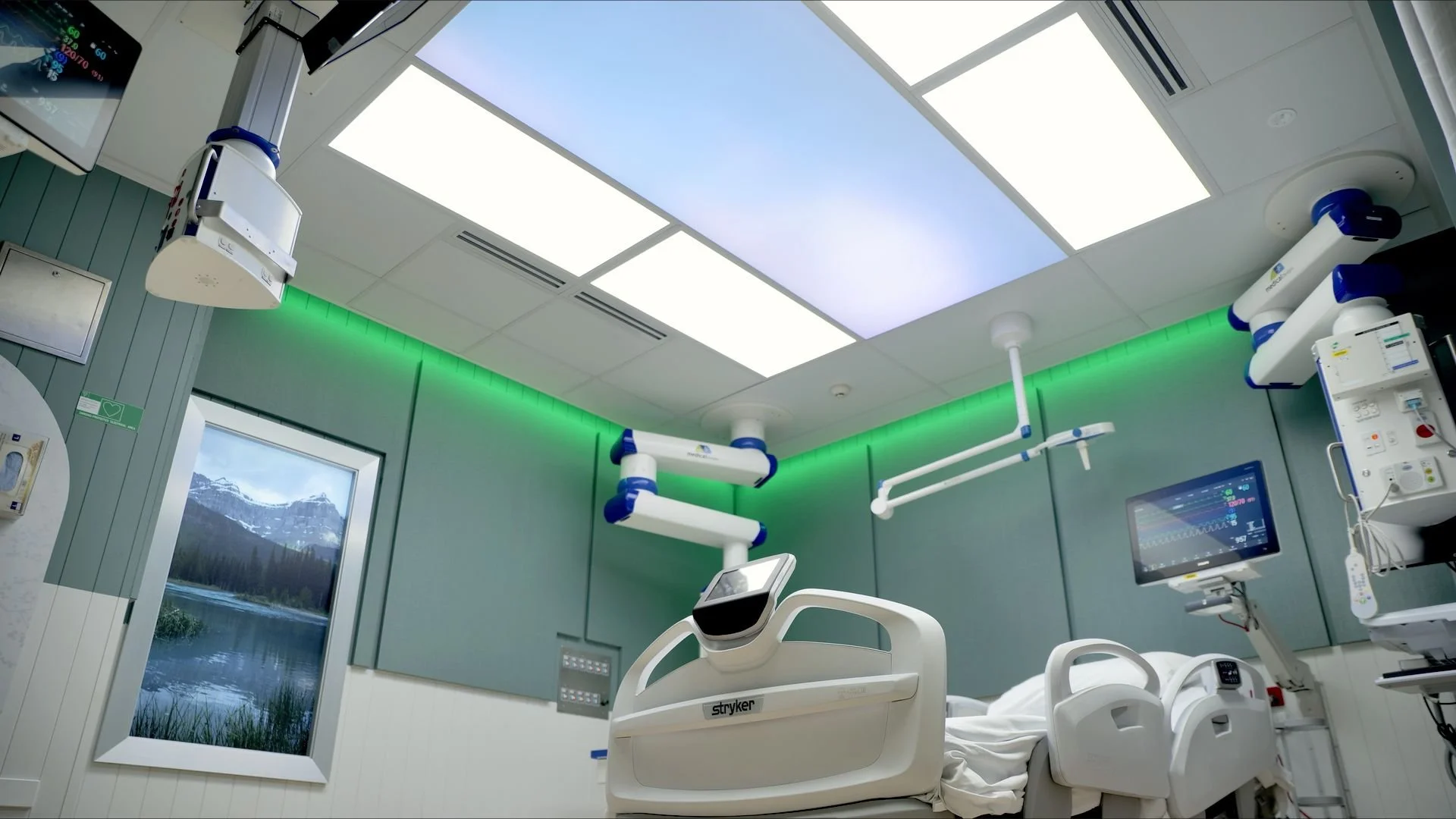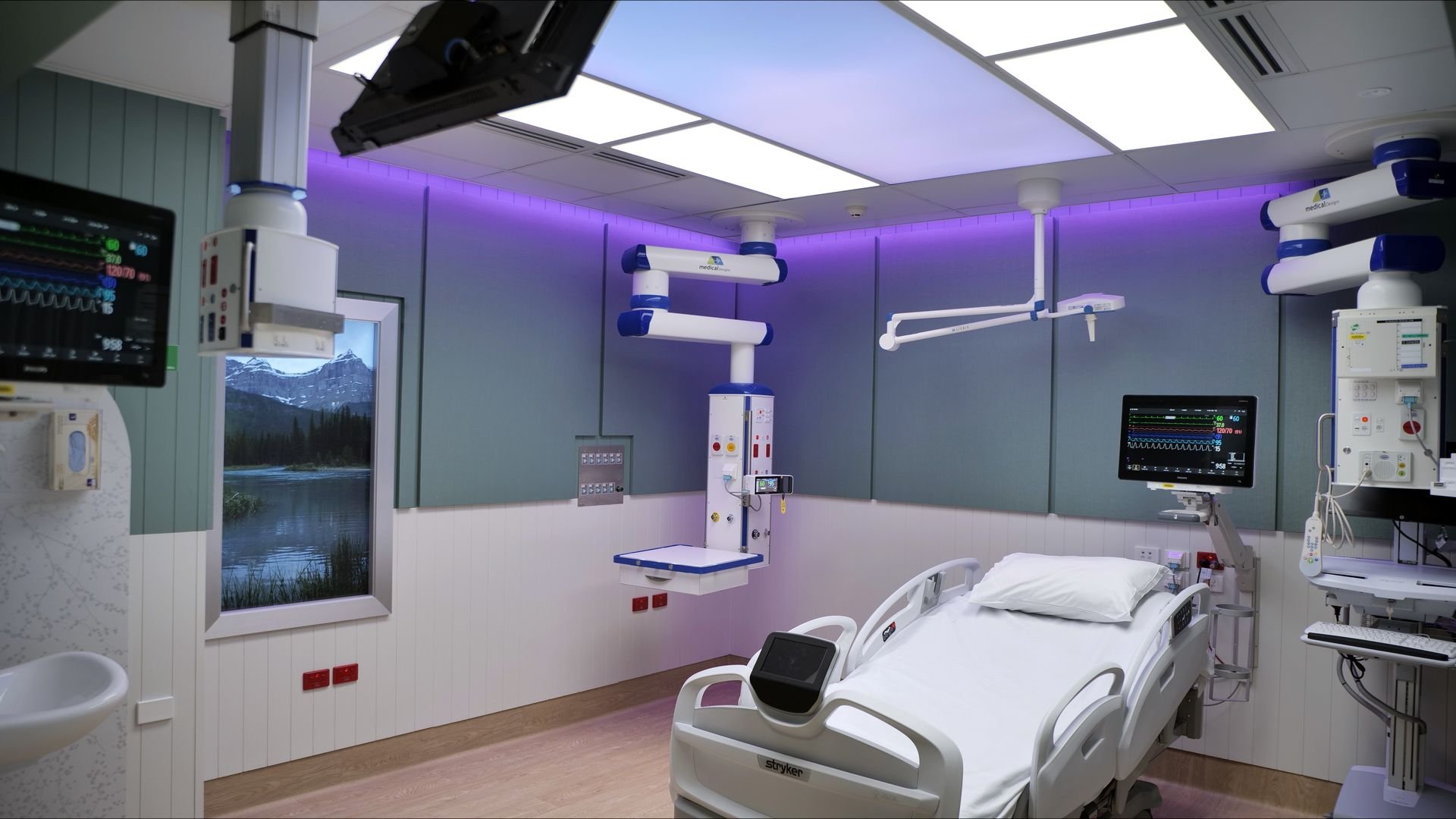CCRG unveils world-first ICU of the Future
In partnership with medical research charity, The Common Good, the Critical Care Research Group has today unveiled the world-first project, ICU of the Future, redesigning the Intensive Care Unit environment at The Prince Charles Hospital to be more patient-centric and recovery focused.
Intensive Care Units can be daunting places for patients and their families with up to 75 per cent of ICU patients globally experiencing anxiety, depression, or other physical, cognitive, or psychological problems. While the quality of care provided and survival rates in Australian ICUs are exceptional, the quality of a patient’s life post-discharge can be suboptimal.
This ends today with new bed spaces unveiled at The Prince Charles Hospital, in a world-first model that is hoped will change the way ICUs operate and care for critically ill patients.
The collaborative project has seen Metro North Health, the CCRG, The Common Good, Queensland Health, and with financial support also from Queensland Technology Future Fund and Queensland Motor Vehicle Accident Insurance Commission, join forces to combat design and environmental challenges which studies found may impact patient recovery.
The team involved in the ICU of the Future project, including CCRG Founder and Director Professor John Fraser, Project Manager Oystein Tronstad and psychiatrist Associate Professor Dylan Flaws, investigated how things such as noise pollution from constant alarms day and night, the lack of natural light, and social isolation contributed to a patient’s ICU experience and the effect on their outcomes and long-term recovery.
“The ICUs we have currently were designed by clinicians, for clinicians. The ICU of the Future challenges this by redesigning the intensive care environment to be more patient-focused, including and prioritising their needs to optimise healing and recovery while ensuring clinical efficiencies,” said Professor John Fraser.
“If you experience delirium while in hospital, your mortality is three times higher in the subsequent six months. Your risk of PTSD can be as high as that seen among war veterans, and your ability to return to work and hold down a job or a long-term relationship can be dramatically diminished.”
“Working hand in hand with clinicians, former patients and their families, and industry partners, the ICU of the Future aims to reduce the incidence of ICU Delirium and improve the experience and long-term outcomes of critically ill patients, optimising the quality-of-life patients can expect to enjoy after leaving the hospital,” said Project Manager Oystein Tronstad.
It's not just patients who are affected by the existing design of ICUs. Many environmental factors, including lack of natural light and excessive noise levels, also contribute to the ICU being a challenging work environment for staff.
As part of their investigations, CCRG built a working prototype to road-test design changes and adapting final innovations with stakeholder recommendations. Now they are pleased to have two ICU bed spaces completed, which will be accepting the first patients as early as January 2023.
“For this world-first project, we are introducing technologies that can reduce the amount of noise experienced by the patient, lighting that can mimic natural light and help maintain the body’s natural circadian rhythm, and improve how patients connect with their family members and the outside world. When the design changes are implemented into a working intensive care unit, we envisage that we will see significant improvements in patient outcomes,” Mr Tronstad said.
The ICU of the Future project was born out of a collaborative, multidisciplinary approach, and more than five years of research. Those involved have a steadfast commitment to understanding the many psychological difficulties patients may experience during and after an ICU stay.
The Common Good CEO Michael Hornby OAM said recent global events put ICUs across the world under immense strain, and with more people than ever undergoing the often-difficult experience of being treated in one, CCRG’s ICU of the Future project is of paramount importance.
“Medical research funding is vital in allowing world-first breakthroughs like the ICU of the Future to happen”, Mr Hornby said. “Without the ongoing support of generous donors, The Common Good wouldn’t be able to fund projects like this and the many others that change people’s lives all over the world.”
(L:R) James Craven; Michael Hornby OAM, CEO of The Common Good; Past-ICU patient Rebecca Craven, CCRG Founder and Director Professor John Fraser; and Oystein Tronstad, ICU of the Future Project Manager




